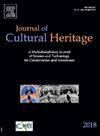Using natural language processing to evaluate local conservation text: A study of 624 documents from 303 sites of the World Heritage Cities Programme
IF 3.5
2区 综合性期刊
0 ARCHAEOLOGY
引用次数: 0
Abstract
The preservation of Outstanding Universal Value (OUV) at World Heritage sites, particularly in urban environments, faces significant challenges due to irreversible damage and lack of adequate attention. Analyzing local conservation documents is critical for assessing awareness of and compliance with OUV standards. Traditional evaluation methods, however, are resource-intensive and subject to inefficiencies and errors, particularly when dealing with large volumes of text. To address these issues, our study employs natural language processing (NLP) techniques to enhance both the size of the sample and the accuracy of the data, thereby enabling a more comprehensive analysis of conservation texts. We examined 624 documents from 303 pivotal sites in the World Heritage Cities Programme, analyzing multiple dimensions and sub-labels related to OUV. Our findings reveal distinct regional variations in OUV-related concerns, influenced by factors such as OUV pillars, criteria, document types, and revision frequencies. Additionally, our research highlights how disparities in wealth, size, industrial structure, and levels of scientific and educational development across different urban heritage contexts contribute to variations in conservation quality. This study provides an efficient and thorough methodology for reviewing local-level plans, which enhances the monitoring and protection of OUV.
利用自然语言处理技术评估地方保护文本:对世界遗产城市计划 303 个遗址的 624 份文件的研究
由于不可逆转的破坏和缺乏足够的关注,世界遗产地,尤其是城市环境中的世界遗产地的突出普遍价值(OUV)保护工作面临着巨大挑战。分析当地的保护文件对于评估对 OUV 标准的认识和遵守情况至关重要。然而,传统的评估方法需要大量资源,而且效率低下,容易出错,尤其是在处理大量文本时。为了解决这些问题,我们的研究采用了自然语言处理(NLP)技术来提高样本的规模和数据的准确性,从而能够对保护文本进行更全面的分析。我们研究了世界遗产城市计划中 303 个重要遗址的 624 篇文献,分析了与 OUV 相关的多个维度和子标签。我们的研究结果表明,在与世界遗产相关的问题上,各地区之间存在明显差异,这些差异受到世界遗产支柱、标准、文件类型和修订频率等因素的影响。此外,我们的研究还强调了不同城市遗产背景下的财富、规模、产业结构以及科学和教育发展水平的差异如何导致保护质量的变化。这项研究为审查地方一级的规划提供了一种高效而全面的方法,从而加强了对世界遗产的监测和保护。
本文章由计算机程序翻译,如有差异,请以英文原文为准。
求助全文
约1分钟内获得全文
求助全文
来源期刊

Journal of Cultural Heritage
综合性期刊-材料科学:综合
CiteScore
6.80
自引率
9.70%
发文量
166
审稿时长
52 days
期刊介绍:
The Journal of Cultural Heritage publishes original papers which comprise previously unpublished data and present innovative methods concerning all aspects of science and technology of cultural heritage as well as interpretation and theoretical issues related to preservation.
 求助内容:
求助内容: 应助结果提醒方式:
应助结果提醒方式:


